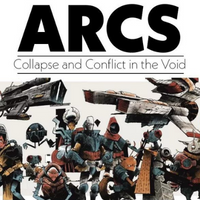13 January 2023
|
Alex Livingston, the author of novel The Knave of Secrets introduces us to the idea of duplicates in hobby gaming
The balance of luck and skill obsesses us. In many games, the best players are those who put themselves in situations where luck is on their side – where more rolls of the dice or drawn cards are more likely to help them than harm them. But what if you eliminated luck completely?
I feel justified in assuming that most readers find that the combination of careful play with the (limited) whims of chance makes for a great night of gaming. Many of the Whist players of yore (and the bridge players of today) felt differently. While the rules of whist eliminate much of the luck of earlier trick-taking games, like getting points for simply having been dealt a face card, how can you really say who is the better player without leaving it the fall of the cards? Maybe she’s just lucky. The cards love him. If I got cards like that….
Hence the invention of Duplicate Whist.
In duplicate, your total score is based not simply on wins, but on how well your score for a hand compares to that of the other players for the exact same hand. Got a miserable deal? Doesn’t matter – a bunch of other players got the same one, and you managed to eke out a trick more than anyone else, garnering yourself some points. And that magnificent hand you grabbed nine tricks with? Well, someone else snagged ten.
Each table at a duplicate event has one deal of four hands, and the players rotate through. Could the duplicate concept be applied to contemporary tabletop? If your gaming group has a favourite, could it be used to see who is the better player once chance is removed?
Coup comes to mind as a game to which the duplicate approach could easily be applied based strictly on wins. Say you had three tables of three players each. Take three Coup decks and keep track of their order. Label the seats A, B, and C. Each player is assigned one of the three letters, and at the end of three hands – each at a different table but with the players in the same assigned seat – compare the number of wins for the players of the same letter. Maybe someone managed a win with an Ambassador and Contessa when the other two players of the same letter didn’t – and got credit for it.
With Coup the individual players’ decisions to draw or not would change which cards were available for the players in different hands; if I switch out and grab a Duke, there’s no guarantee the person in the same seat next hand will do the same. The same concern presents itself with a deck-builder like Star Realms.
This is the blackjack problem – “you shouldn’t have hit, and that seven should be mine” – and could be a frustration for the strictest competitors, but (barring any high-stakes underground Coup rings) it would likely add more conversation and interest to the post-game analysis. “Oh, I decided to go for Blob, so that Mech World didn’t come up on my turn” etc.
Dice rolls could be static as well, if you’ll pardon the oxymoron. Roll a few hundred times or have one of these new-fangled computers do it for you, keep the list, and use it for each game. Printing up a bunch of domino cards would serve equally well. (For an impassioned treatise on dice rollers, I recommend the eXtreme gammon FAQs. It gets heavy.)
This approach could be applied to many games, of course; let’s look at the space sandbox Xia: Legends of a Drift System.
For a duplicate Xia tourney, the order of the tiles and the card decks would be preset by the organizer. These would be the same at each table, as would the stack of “dice roll” cards. How did you do against a player with the same starting ship? You may have lost the game, but if you came out with the highest score among the Easy Tiger players, you could still take the tourney.
The duplicate approach could really shine with single-player games (or SP variants). A Nemo’s War challenge in which the order of ships coming out of the bag and adventure cards drawn is preset would lead not only to serious bragging rights, but to a detailed review of every single turn. Why did one player choose to attack a frigate when another turned tail? How did that impact the rest of the game?
Duplicate could bring a different level of scientific play to the games we love, and more importantly, would prompt a deeper understanding of the mechanics through conversations with friends about the choices made. Not that I would turn down the bragging rights, of course.
About Alex Livingston
Alex Livingston grew up in various quiet New England towns before moving to Buffalo, NY to study English at Canisius College. He lives in an old house with his brilliant wife and a pile of aged videogame systems where he writes SFF prose and interactive fiction. The Knave of Secrets (Solaris, June 2022) is his debut novel.
Looking for more?

This review came from Tabletop Gaming Magazine, which is home to all of the latest and greatest tabletop goodness. Whether you're a board gamer, card gamer, wargamer, RPG player or all of the above, find your copy here.
Get your magazine hereRead More...

If you want to read more about one of the most hotly anticipated games of the year, check out our interview with Cole Wehrle on ARCS! A new game from the designer of Root and Oath, and we've got all you need to know.
To infinity and beyond
Sometimes we may include links to online retailers, from which we might receive a commission if you make a purchase. Affiliate links do not influence editorial coverage and will only be used when covering relevant products








Comments
Login or register to add a comment
No comments